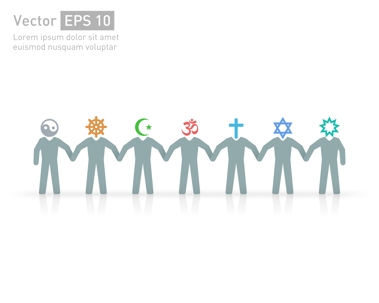The United States is a melting pot of cultural and religious traditions from all around the world. This is especially true in New York City and other large, diverse metropolitan areas. Despite the presence of so many varied religious traditions in this country, it can be easy for employers to overlook traditions that fall outside the mainstream and deny workers their right to observe their religious practices. This is a form of religious discrimination.
An Overview of All the Holidays That Occur in December
December is a festive month for people all over the world. Many religious and secular holidays occur in December, some on fixed dates every year and others on varying dates, sometimes even falling in November or January. Below is a list of all the holidays that occurred in December 2016:
- Mawlid al-Nabi
- Hanukkah
- Christmas
- Yule
- Kwanzaa
- Geeta Jayanti
- Dhanu Sankranti
- Bodhi Day
If you are an employer, determine the dates for all religious holidays before December begins. This way, you can prepare for any requests for time off from your employees and develop a flexible schedule that suits the whole company’s needs.
Do Full-Time Workers have More Rights than Part-Time Workers?
In some cases, yes. But not when it comes to employees’ rights to seek reasonable accommodations that allow them to observe their religious traditions without interfering with their work. The rights afforded to employees under Title VII of the Civil Rights Act and the Fair Labor Standards Act are for all employees, part and full time.
If you request a day or even a part of a day off for religious observance, your employer must comply with your request unless it would create an undue hardship for the company. Undue hardships include reduced productivity, higher operating costs, and threats to other workers’ safety or rights. When an employee requests a reasonable accommodation for his or her religious needs, the employer should work with him or her to find a solution that works for both parties.
Employers are not required to pay any of their employees for time not worked. Although many companies do provide holiday pay, it is merely a perk. However, offering employees of one faith paid holidays off while denying the same for other employees may be considered to be a form of religious discrimination. If this happens in your workplace, discuss it with your company’s Human Resources department to determine if there is a way to amend the discrepancy.
Work with an Experienced New York Religious Discrimination Lawyer
If you think you have been a victim of religious discrimination in your workplace, speak with an experienced religious discrimination lawyer to determine your rights and whether you have grounds to take action against your employer through a religious discrimination claim. To learn more, contact Ricotta & Marks, P.C. and call (917) 540-8565 to set up your initial legal consultation with an NY religious discrimination attorney.

